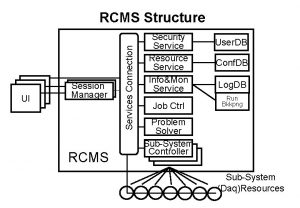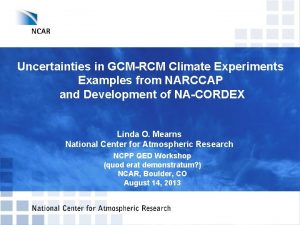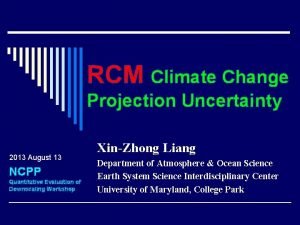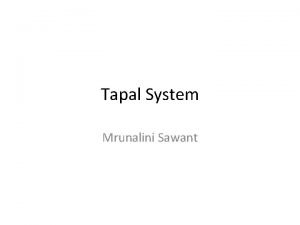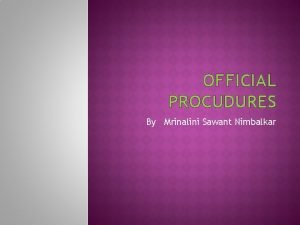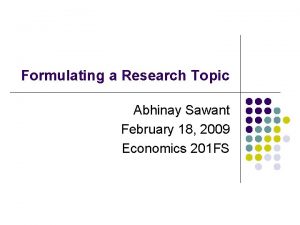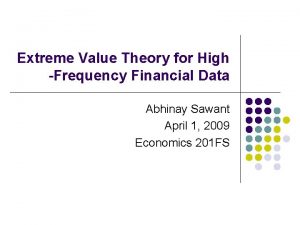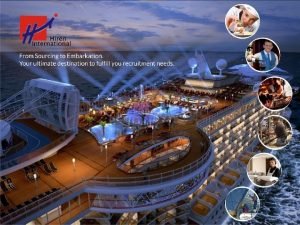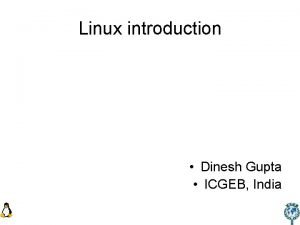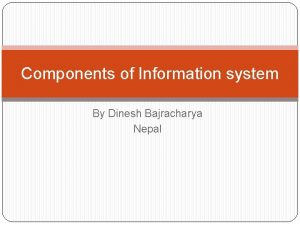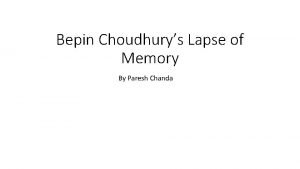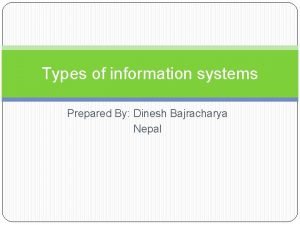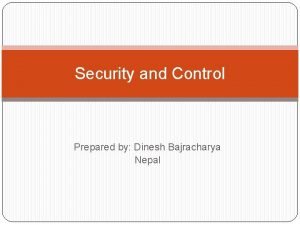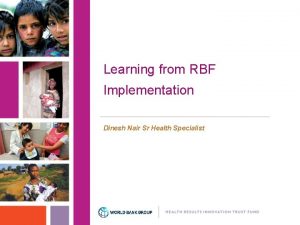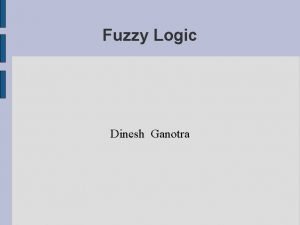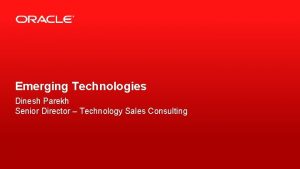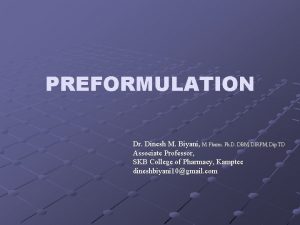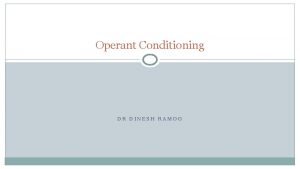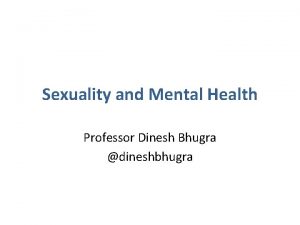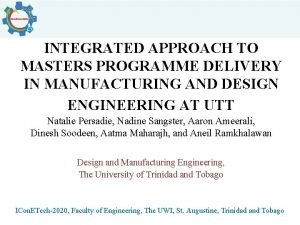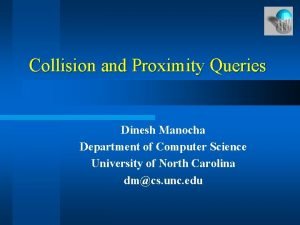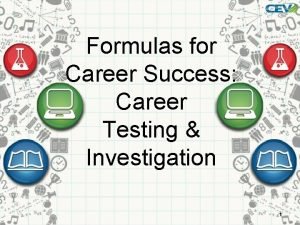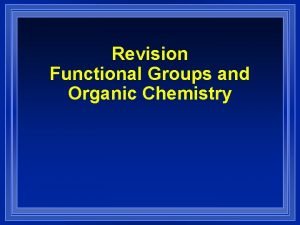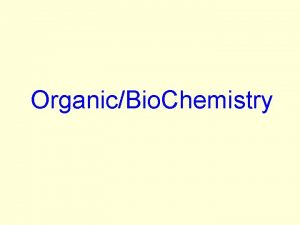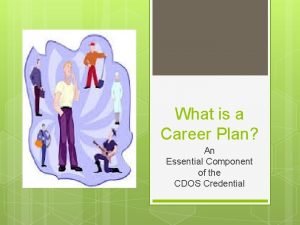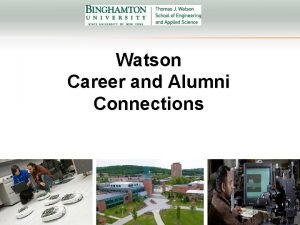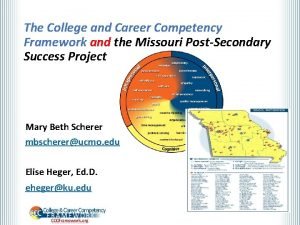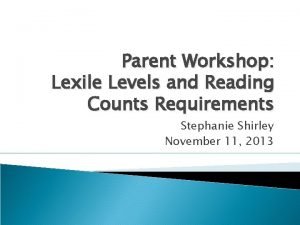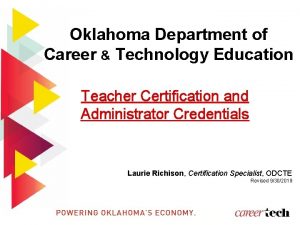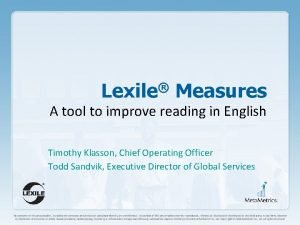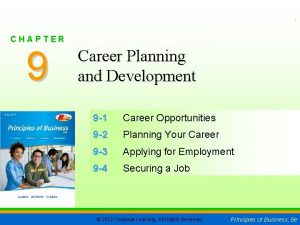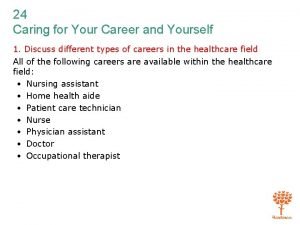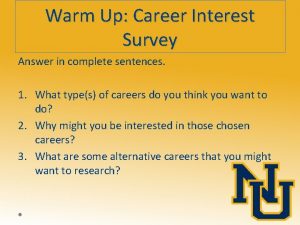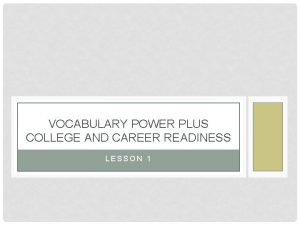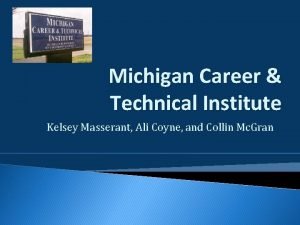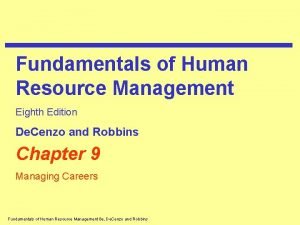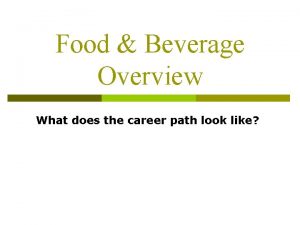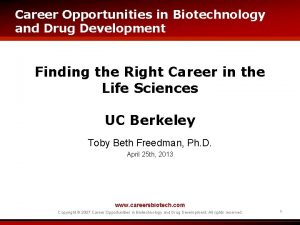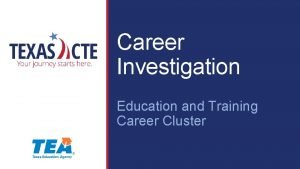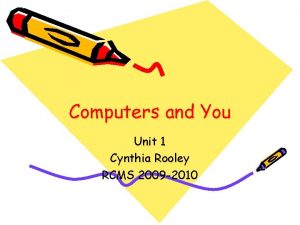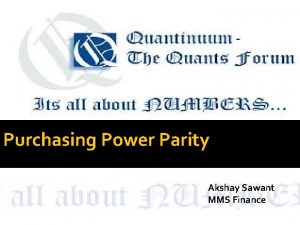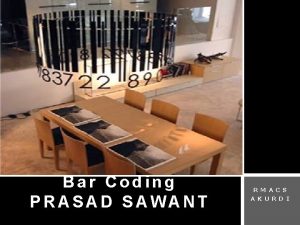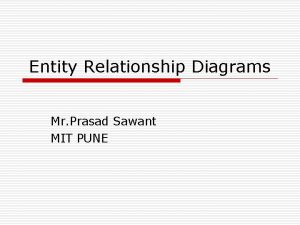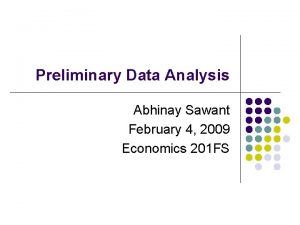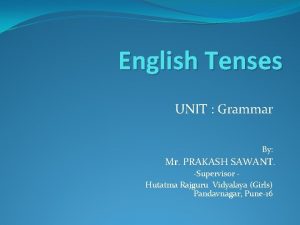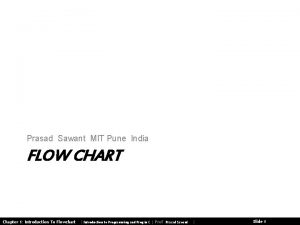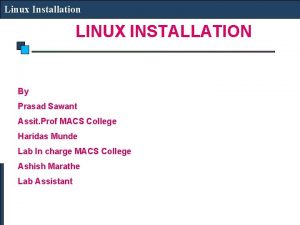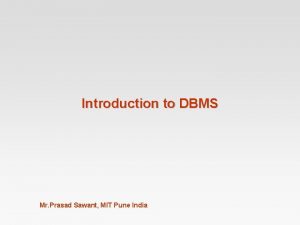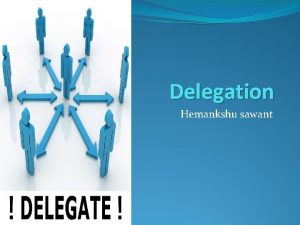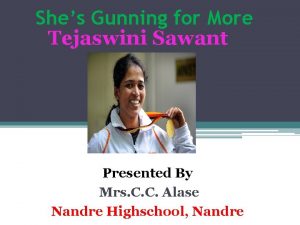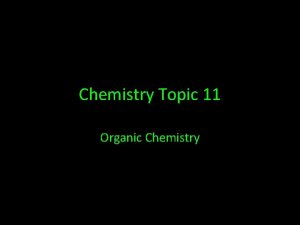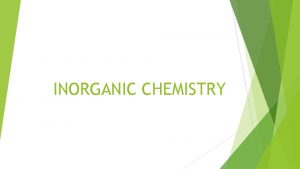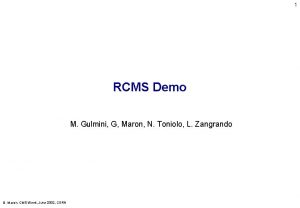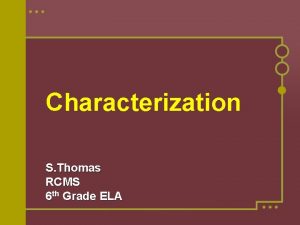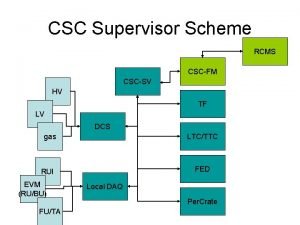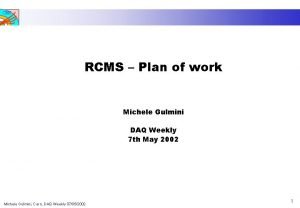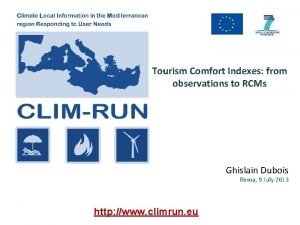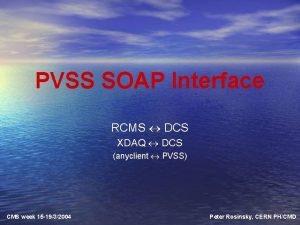Chemistry and Career Dr Dinesh Nanaji Sawant RCMS










































- Slides: 42

Chemistry and Career • आमह ब -घडल तमह ब -घड न • Dr. Dinesh Nanaji Sawant • RCMS Fellow • Prof. Dr. Ryoji Noyori’s Research Group • (2001 Chemistry Nobel Laureate) • Research Center for Material Sciences (RCMS) • Nagoya University, Japan • 11 th February 2017 • 1

Introduction • 2002 – 2005 B. Sc Chemistry, North Maharashtra University Jalgoan, • (2002 -2004) Diploma In Medical Laboratory Technology • (part time 2 years at Jai Hind College Dhule) • • 2005 – 2007 M. Sc Organic Chemistry, Ahmednagar College, University of Pune • 2008 – 2012 Ph. D Catalysis, Institute of Chemical Technology (UDCT), Mumbai • ‘’ Transition Metal Catalyzed C-C and C-N Bond Forming Reactions’’ • (Research Guide: Prof. Dr. B. M. Bahange, Department of Chemistry) • (2010 -2012 ) Post Graduate Diploma In Chemical Technology Management, • (part time 2 years ICT, Mumbai) • Sept 2012 • March 2016 • • Post Doctoral Research Fellow Prof. Dr. Jorg Eppinger King Abdullah University of Science and Technology Saudi Arabia in collaboration with TU Munich, Germany • May 2016 • March 2017 • RCMS Post Doctoral Research Fellow Prof. Dr. Ryoji Noyori (Nobel Laureate) Nagoya University, Japan Industrial Experience: Aug. 2007 - Apr. 2008 Research Associate, Nicholas Piramal Research Centre, Mumbai, India. June 2012 - Sep. 2012 Junior Scientist, R&D, Huntsman Chemical International, Mumbai, India. • 2

• Interactions with Nobel Laureate and Eminent Scientist in Catalysis • Prof. Dr. Matthias Beller • Prof. Dr. Robert H. Grubbs • Director, Leibniz Institute for Catalysis • Caltech, USA • at the University of Rostock • 43 • Prof. Dr. Ryoji Noyori • Nagoya University , • Japan 3

• PDF at Prof. Dr. Ryoji Noyori’s Research Group (Nobel Laureate) • Nagoya University, Japan • 4

• Development of Economical and Greener Hydrogenation Catalyst • Cationic mononuclear ruthenium carboxylates as catalyst prototypes for self-induced hydrogenation of carboxylic acid • Nature Communications 2015 6, 8140 • The Noyori Laboratory, RCMS, Nagoya University Japan Ø Currently working on synthesis of new phosphine ligands and its transition metal based complexes for selective hydrogenation of esters and amides. Ø Project target is to use economical metals complexes such as Fe, Mn, Re etc. • 5

Bioorganometallic Catalysis • enzyme • cell / organism • biofilm • bio-catalyst framework • selectivity • Artificial Metalloprotein • Host protein • = highly defined and functionalized surface • - metal binding • - substrate orientation T∆S# • - co-activation • selectivity • bio-catalysis • Bioorganometalic catalysis • Artificial metal centre • = highly defined metal complex • - determines reactivity • - substrate activation ∆H# • diversity • homogeneous catalysis • organometallic catalyst • reactivity IMPACT 2017: ACS College Nandgaon. • 6

• 7 KAUST Catalysis Center (KCC) - Biological & Organometallic Catalysis Laboratories IMPACT 2017: ACS College Nandgaon.

Career in Chemistry KAUST Catalysis Center (KCC) - Biological & Organometallic Catalysis Laboratories B. Sc (chemistry) M. Sc 1. 2. 3. 4. 5. Organic Chemistry Inorganic Chemistry Physical Chemistry Drug Chemistry Polymer Chemistry etc NET/SET/GATE/DST INSPIRE etc Ph. D Research publications, Awards, Presentations Post Doctoral Research publications, Experience, Awards, Projects JOB Industrial Job Academic job Govt. Jobs Competitive exams Change area of interest MBA etc JOB Industrial Job Academic job Govt. Jobs IMPACT 2017: ACS College Nandgaon.

Skills important in Industry and Academic Research KAUST Catalysis Center (KCC) - Biological & Organometallic Catalysis Laboratories 1. Computer knowledge: Power point, Excel, Word, Internet use, scopus, scifinder, reaxys etc 2. Language (English) at least scientific English. 3. Basic Laboratory techniques: Reactions in RB, Use of heating apparatus such as hot plates, compound purification techniques Prep-TLC, Colum Chromatography 5. Characterization techniques: TLC, IR, NMR, GCMS, HPLC, LCMS etc. 6. Personal protective equipments such as lab coat, hand gloves, masks, eye gogles etc. 7. Laboratory safety: Use of fire extinguisher, MSDS of chemical, Chemical storage and Separation. 8. Research DATA management in lab journal as well as on computer. 9. Presentation and communication skills IMPACT 2017: ACS College Nandgaon.

KCC Seminar – May 15, 2011 – Dr. Bastian Sauerer B. Sc (Bachelor of Science) KAUST Catalysis Center (KCC) - Biological & Organometallic Catalysis Laboratories B. Sc 1 st year: 1. A) B) C) D) E) Why am I doing B. Sc For Job after B. Sc For higher education and research career For Job in Industry after higher education For competitive exams such as MPSC/UPSC etc. For time pass Select subjects as per your career goal B. Sc 2 nd year: 1. 2. 3. 4. 5. 6. 7. Decide subject of your specialization in 3 rd year Understand basic of subject read F. Y books again. Focus on practical skills know mechanism of reactions before doing practical's. Improve stage daring, presentation and communication skills. If want to go abroad for masters start preparation of GRE/TOFEL Start preparation for IIT-JAM and entrants exams of other top institute for M. Sc entrants Do computer course for basic knowledge Do participate in NSS, sports, cultural or any at least single activity which you like it help a lot for self confidence, communication and positive thinking

B. Sc (Bachelor of Science) KAUST Catalysis Center (KCC) - Biological & Organometallic Catalysis Laboratories B. Sc 3 rd year: 1. Understand subject very well 2. Improve practical skills 3. Do research internship at NCL, IIT, BARC or any other University. 4. Attend conferences in your institute or nearby institutes. 5. Contact your senior friends for M. Sc admission. 6. Collect information of last date and syllabus for M. Sc entrants exams of IIT, BARC school, other University and Home University. 7. Visit industry or research institute. 8. For abroad study attempt GRE/TOFEL etc and contact university faculty abroad for MS. 10. Also search for integrated MS-Ph. D programs Decide your specialization for M. Sc as per your interest and knowledge And decision should not based on scope of subject IMPACT 2017: ACS College Nandgaon.

M. Sc (Master of Science) KAUST Catalysis Center (KCC) - Biological & Organometallic Catalysis Laboratories M. Sc 1 st year: 1. Study all 1 st year subject well, important for NET/SET/GATE as well as for basics. 2. Collect information about NET/SET/GATE, syllabus, date of exams. 3. Participate in scientific lecture/poster competitions and conferences. 4. Must do research internship at research laboratory during M. Sc. 5. Improve presentation and communication skills. 6. For future perspective prepare for GRE/TOFEL to study abroad. M. Sc 2 nd year: 1. 2. 3. 4. 5. 6. 7. Decide career goal. Attempt NET/SET/GATE/GRE/TOFEL Search for Ph. D programs in INDIA and abroad check last date of applications. Search for funding/Fellowship opportunities for Ph. D. Must know about scientific software, search engines such as scopus, sci finder, reaxys. Must know about literature search, scientific journals, papers, reviews. After result apply for JOB as well as try for Ph. D IMPACT 2017: ACS College Nandgaon.

Ph. D (Doctor of Philosophy) KAUST Catalysis Center (KCC) - Biological & Organometallic Catalysis Laboratories 1. Must know about literature search using scopus, sci-finder, reaxys, 2. Must be perfect in using chem draw, power point, word, excel. 3. Learn about use of basic analytical instruments such as: FT-IR, GC-MS, HPLC, NMR. 4. Know laboratory safety and PPE 5. Know about research groups working in your area of intrest in INDIA and Abroad. 6. Learn how to write research paper, proposal, review. 7. Maintain lab journal. 8. Participate in international confernces. 9. Publish at least 1 paper in good journal during 2 nd year of Ph. D and do research internship abroad. 10. Do some part time relevant courses such as German language, Management course, IPR course. 11. Improve scientific contacts and friend circle in INDIA and Abroad

Ph. D in INDIA KAUST Catalysis Center (KCC) - Biological & Organometallic Catalysis Laboratories Admission at Indian University/IIT/ICT/IISER: Entrants Exam. A. Paper 1: GK and research aptitude. B. Paper 2: Subject based. C. Interview and Guide selection. NET/SET/DST INSPIRE fellow and some cases GATE qualified candidate exempted from entrants. Entrants is only for getting admission to Ph. D Top institute such as NCL, IIT, IISER prefer candidate with their own fellowships such as NET-JRF, DST-INSPIRE or GATE (IIT). There also many other options to get fellowships and do research in other university and Institutes in INDIA IMPACT 2017: ACS College Nandgaon.

Fellowships for Ph. D research KAUST Catalysis Center (KCC) - Biological & Organometallic Catalysis Laboratories Minimum fellowship amount per month for JRF is ranging from 10000 to 22000 INR per month For SRF its 12000 to 28000 INR per month. 1. CSIR/UGC NET JRF: CSIR conducts NET exam and award JRF to selected merit students. 2. DST INSPIRE Fellowship: For university topper and gold medalist (by DST). 3. UGC-SAP JRF and SRF : Every university department annually gets UGC SAP fellowship for Ph. D students criteria is first class M. Sc and as per university norms. 4. Project Based Fellowships: Govt or Industry based projects also provide fellowships for Ph. D candidate. 5. Educational Trust: Tata memorial trust also provide fellowship for Ph. D. 6. UGC sponsored RAJIV GANDHI Fellowship: For SC/ST students to do Ph. D in science. 7. UGC sponsored Ph. D fellowship for minority: for Ph. D registered minority students. 8. CSIR-SRF: For Ph. D registerd candidate with 1 international paper and 2 years of research. 9. Industry sponserd Ph. D candidate: after 3 -5 years of industrial job as per industry policy some industry also offers Ph. D along with job.

Ph. D abroad: KAUST Catalysis Center (KCC) - Biological & Organometallic Catalysis Laboratories 1. English language test GRE/TOFEL is compulsory. 2. Fellowship: There are many fellowship options available: A) Funding by foreign University: DAAD fellowship for Germany B) Fellowship from research guide funds C) Indian government fellowships: Nehru-fullbright fellowship for US. D) Private funding agency also provides fellowships for abroad study. IMPACT 2017: ACS College Nandgaon.

KCC Seminar – May 15, 2011 – Dr. Bastian Sauerer How to do Ph. D KAUST Catalysis Center (KCC) - Biological & Organometallic Catalysis Laboratories 1. Entrants exam 2. Selection of guide: a) Number of publication and impact factors b) Young Guide: Less papers but more opportunity to publish more work. c) Old reputed guide: Name helps for getting good funding and publication. d) University or guide: Oxford Prof. with less paper or UK other university Prof with good profile your choice. 3. Selection of topic: Most of the cases depend on research area of guide because particular group has expertise, chemicals, instruments in that area. Select topic of mutual interest and do best. 4. Writing outline/Research Proposal: 1) Introduction 2) Literature 3) Your Idea 4) Research Plan 5) Techniques, Instruments, Chemicals used 6) Time plan 7) Out put and important 5. Topic approval IMPACT 2017: ACS College Nandgaon. 6. Registration

KCC Seminar – May 15, 2011 – Dr. Bastian Sauerer How to do Ph. D KAUST Catalysis Center (KCC) - Biological & Organometallic Catalysis Laboratories 7. Course work 8. Actual Research 9. Publication (Next project) 10. Completion of project as per suggestion of Ph. D guide 11. Thesis writing 12. Thesis submission 14. Final presentation (Viva) 15. Award of Ph. D degree. 16. Job or Post doctoral research IMPACT 2017: ACS College Nandgaon.

KCC Seminar – May 15, 2011 – Dr. Bastian Sauerer Job opportunities KAUST Catalysis Center (KCC) - Biological & Organometallic Catalysis Laboratories Industry: 1. Research and Development 2. Process Research and Development 3. Plant/Production 4. Quality control 5. Quality Assurance Pharma, Chemical, Paint, Polymer, Textile etc Teaching Jobs: Assistant Professor: NET/SET/Ph. D as per 2009 rules Associate Professor: Ph. D, 5 publications, 7 years experience Professor: Ph. D, 10 publications, 10 years experience. Colleges, University Departments, IITS, IISER, NIT, Central Universities, IMPACT 2017: ACS College Nandgaon.

KCC Seminar – May 15, 2011 – Dr. Bastian Sauerer Job opportunities KAUST Catalysis Center (KCC) - Biological & Organometallic Catalysis Laboratories Government: 1. DST, UGC, CSIR for various scientific posts, proposal evaluation, implementation of program 2. MPSC: Forensic science laboratories, Food Inspector, Government colleges etc, Director of various posts. 3. BARC, NCL, Central CSIR laboratories. 4. There are plenty of opportunity available in every sector we only needs vision to identify them. IMPACT 2017: ACS College Nandgaon.

• Transition metal catalyzed coupling Reactions 1. Introduction 2. Work done 3. Publications and Conferences 4. Awards 5. Acknowledgement IMPACT 2017: ACS College Nandgaon. • 21

• Nobel Prize in Chemistry 2010 • Prof. Richard F. Heck • Prof. Ei-ichi Negishi • Prof. Akira Suzuki • University of Delaware, USA • Purdue University, USA • Hokkaido University, Japan • “For palladium catalyzed cross coupling in organic synthesis” IMPACT 2017: ACS College Nandgaon. • 22


• Work done 1. Carbon-Monoxide-Free Aminocarbonylation 2. Cyanides free cyantion 3. CO free one step synthesis of Isoindole-1, 3 -diones. 4. Homogeneous recyclable catalyst for the Heck reactions. 5. Fe. Cl /PPh catalyzed Sonogashira reactions. • 24

• Carbonmonoxide free aminocarbonylation IMPACT 2017: ACS College Nandgaon. • 25

• Introduction IMPACT 2017: ACS College Nandgaon. • 26

• Aminocarbonylation • Prof. Richard Fred Heck • University of Delaware, USA • Nobel Prize in Chemistry (2010) • Refrence: Schoenberg, A. ; Heck, R. F. J. Org. Chem. 1974, 39, 3327– 3331. • 27

• Applications • 28

• Limitations of Carbon Monoxide • Highly toxic gas. • Handling. • Storage and transport. • High-pressure reactors. IMPACT 2017: ACS College Nandgaon. • 29

• Carbonmonoxide free aminocarbonylation IMPACT 2017: ACS College Nandgaon. • 30

IMPACT 2017: ACS College Nandgaon. • 31

• Alternate CO Source Metal Carbonyls: Mo(CO)6, Ni(CO)4, W(CO)6. • Highly toxic and Expensive. Carbamoylsilane, carbamoylstannanes. • Limited application and are commercially not available. N, N-dimethyl formamide (DMF). • • • A) DMF as CO source: Use of microwave, in situ CO generation, and high reaction temperature. • B) DMF as Amide source: Good option. • 32

• Prior Art • Novel Chemistry: • Amide • Aldehyde • Hosoi, K. ; Nozaki, K. ; Hiyama, T. Org. Lett. 2002, 4, 2849– 2851. • Limitation: Applicable only for DMF. Limited for aryl iodides. Lower yield. Longer reaction time (24 h). • 33

IMPACT 2017: ACS College Nandgaon. • 34

IMPACT 2017: ACS College Nandgaon. • 35

• Palladium-Catalyzed Carbon-Monoxide-Free Aminocarbonylation Of Aryl Halides Using N-Substituted Formamides as an Amide Source • D. N. Sawant, Y. S. Wagh, K. D. Bhatte, B. M. Bhanage • Journal of Organic Chemistry 2011, 76, 5489– 5494. • (Impact factor: 4. 0) IMPACT 2017: ACS College Nandgaon. • 36

• Optimized parameters Iodobenzene : 1 mmol Pd(OAc)2 : 3 mol % Xantphos : 6 mol % POCl 3 : 2 mmol DMF : 5 m. L Temperature : 135 °C Time : 6 h IMPACT 2017: ACS College Nandgaon. • 37

• Substrate Study IMPACT 2017: ACS College Nandgaon. • 38

• Reaction conditions: 1 (1. 0 mmol), DMF (5 m. L), Pd(OAc)2 (3 mol %), Xantphos (6 mol %), POCl 3 (2 mmol), 135 °C, 6 h under nitrogen atmosphere. • Isolated yield- Product characterized by 1 H and 13 C NMR, GCMS and IR. • 39

• Reaction conditions: 1 (1. 0 mmol), 2 (5 m. L), Pd(OAc)2 (3 mol %), Xantphos (6 mol %), POCl 3 (2 mmol), 135 °C, 6 h under nitrogen atmosphere. Isolated yield- Product characterized by 1 H and 13 C NMR, GCMS, IR • 40

• Conclusion • A new protocol for CO-free aminocarbonylation has developed. • Applicable for a wide range of formamides and aryl halides. • Lower reaction time and higher yields. IMPACT 2017: ACS College Nandgaon. • 41

• 48 • With Prof. Dr. Ryoji Noyori (2001 Chemistry Nobel Laureate) • Director, Science Museum, Japan Science Foundation • Director-General, Center for Research and Development Strategy (CRDS), • Japan Science and Technology Agency (JST) • Ex-President, RIKEN, Japan (2015– RIKEN Fellow) • Thank You • 42
 Rcms ui
Rcms ui Rcms
Rcms Rcms
Rcms Sawant group of industries
Sawant group of industries Tapal monitoring system
Tapal monitoring system Mrunalini sawant
Mrunalini sawant Abhinay sawant
Abhinay sawant Abhinay sawant
Abhinay sawant Hiren international dubai
Hiren international dubai Mpls fundamentals
Mpls fundamentals Dinesh gupta icgeb
Dinesh gupta icgeb Dinesh bajracharya
Dinesh bajracharya *who was paresh chanda?*
*who was paresh chanda?* Dinesh bajracharya
Dinesh bajracharya Dinesh bajracharya
Dinesh bajracharya Dr dinesh nair
Dr dinesh nair Dinesh ganotra
Dinesh ganotra Dinesh parekh portfolio
Dinesh parekh portfolio Dr dinesh parekh
Dr dinesh parekh Premack principle
Premack principle Dr dinesh bhugra
Dr dinesh bhugra Meredith burkle
Meredith burkle Physx
Physx National career clusters
National career clusters Formulas for career success career testing & investigation
Formulas for career success career testing & investigation Functional groups ib chemistry
Functional groups ib chemistry Inorganic vs organic chemistry
Inorganic vs organic chemistry Pretest: developing an academic and career plan
Pretest: developing an academic and career plan Cdci binghamton
Cdci binghamton Cccframework
Cccframework Reading counts levels
Reading counts levels Oklahoma alternative placement program
Oklahoma alternative placement program College lexile level
College lexile level It is a short account of one's career and qualifications
It is a short account of one's career and qualifications Chapter 9 career planning and development
Chapter 9 career planning and development Chapter 31 caring for your career and yourself
Chapter 31 caring for your career and yourself Radar and sonar technician career cluster
Radar and sonar technician career cluster Vocabulary power plus for college and career readiness
Vocabulary power plus for college and career readiness Mcti dorms
Mcti dorms Career choices and preferences in hrm
Career choices and preferences in hrm How more can restaurant industry
How more can restaurant industry Career opportunities in biotechnology and drug development
Career opportunities in biotechnology and drug development Education and training career cluster definition
Education and training career cluster definition
